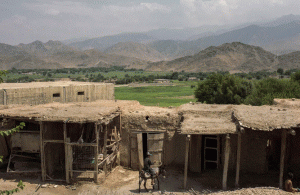The other evening, Fox News host Tucker Carlson appeared to be on the point of literally tearing out his hair as he railed against the relentless and near-universal negative reaction to President Donald Trump’s decision to relocate a few hundred US troops in northeastern Syria. At first glance, it is indeed baffling, even perhaps hinting at a kind of mass psychosis. On the ground in Syria, after all, the fallout thus far has been anything but catastrophic. The Kurds are now protected by the Syrian and Russian armed forces. These countries’ leaders, on the back of US sanctions against Ankara, are negotiating a ceasefire with Turkey. A few hundred of the more than 10,000 half-starved, unarmed Islamic State fighters did escape from the Kurdish-guarded prison camps, but at the moment they pose a threat to no one. The pragmatic, Trumpian view, that whatever transpires over there in any event will not have any tangible consequences for ordinary Americans going about their daily business over here, has not been proven wrong. So what accounts for all this continuing screaming and shouting from America’s media elite?
After failing to persuade Trump to hold Saudi Crown Prince Mohammed bin Salman responsible for the murder last year of Washington Post columnist Jamal Khashoggi, Syrian President Bashar al-Assad – whom the American media loathe with equal measure – has (and again with Trump’s blessing) now become the first Arab leader to survive a Western-engineered regime change in the Middle East since Egyptian strongman Gamal Abdul Nasser. There is only one thing American journalists, whatever their personal politics, love more than their fellow op-ed columnists, and that is bombing Arab countries in the name of liberating their people. Suddenly, then, they appear irrelevant, or at least utterly incapable of influencing White House policy. Since George W. Bush, journalists, policy wonks and the like have regularly met with US presidents to offer advice, and in some instances – the late Bernard Lewis is an obvious example – they have significantly helped determine Middle East strategy. These days, apparently only Carlson is welcome. For the rest, being so excluded from the corridors of power must be a huge blow to their egos, and especially when we are witnessing the biggest shift in geopolitical influence in the Middle East since the 1956 Suez Crisis.
Back then, a bumbling attempt by Britain, France and Israel to seize Egypt’s Suez region and its vital canal (after the latter was nationalized) brought to a swift end Britain’s commanding influence in the world. The debacle pushed Egypt into the arms of the Soviet Union, but also ushered in decades of American hegemony in much of the rest of the Middle East. Fast forward to the present. The equally ill-thought-out Syrian campaign, and its unfolding miserable conclusion, means America, too, is slowly but surely conceding hegemony. What goes around certainly comes around in the Middle East, and this time Russia is filling the vacuum. Syria is now a Kremlin protectorate at the epicenter of Vladimir Putin’s new and vast sphere of influence, stretching from the Levant to the Arabian Gulf and North Africa.
Still, all may not be lost for the army of Trump-hating pundits, journalists and think tank pseudo-academics. For an opinion they also almost all share, and likewise have in common with almost all American politicians, is that Israel is an indispensable Middle Eastern US ally, and that the Jewish state’s security should therefore be the bedrock of American policy. In fact, from the outset, the movement to overthrow Assad was partly a popular uprising but also an orchestrated effort by the West to install a Sunni regime in Damascus that would be friendly to the Gulf Arab states and Israel. (Israel and Syria are still technically at war, as they have been since the Jewish state was founded in 1948.) Adopting the Afghanistan playbook from the 1980s, we trained, funded and armed Sunni jihadis, domestic and foreign, with the aim of bringing about the long-cherished goal of creating a buffer in Syria between Iran and its Lebanon-based proxy Hezbollah (both committed, rhetorically at least, to Israel’s destruction).
This hare-brained scheme failed to take into account, firstly, that Assad had both balls of steel and a great deal of popular support among Syrians who felt it was wiser to stick to the devil they knew, so he was never going anywhere. And, secondly, that if things went awry, as US policy almost always does in the Middle East, it could all so easily culminate in the exact opposite outcome. The US-backed freedom fighters in Afghanistan who fought the Soviets, after all, then morphed into the Taliban. A repeat of that worst-case scenario would mean Iran and its Shia allies would win in Syria, and thus surround the Jewish state on all fronts. Absurdly, that is precisely what transpired. And as a result, whatever the fate of the Kurds, it is as nothing compared to the crapfest Israel is about to face. The endgame in northeastern Syria has become a last-ditch effort to save the Jewish state from a potential war on all fronts.
Trump wants nothing more than to pull out all the troops from Syria and be done with it, but with the threat of impeachment hanging over his head he cannot afford to alienate Lindsey Graham and the other pro-Israel Republican war hawks. Graham was able to persuade him to keep US troops near Syria’s oil facilities in the northeast, and more crucially at the US base at Al-Tanf located near the Iraq and Jordan-Syria border. The oil is irrelevant; by keeping US troops there, the tiny contingent at Al-Tanf are not completely isolated. Thus the main Baghdad-Damascus highway remains closed, since no one in their right mind is going to fire on US troops. Iran’s unobstructed ‘Shia Crescent’ corridor is still on hold.
But for how long can a few hundred troops and the remnants of the loyal Kurdish fighters allied with them hold off the inevitable Russian-backed, Iranian-led Shia surge? Having formed an alliance with Syria and Russia, and with Assad determined to rid Syria of all US troops, the Kurds will be under massive pressure to cut all ties with US forces in return for political concession from Damascus in their autonomous zone. It is only a matter of time until they do, and Israel’s nightmare of an encroaching Iran becomes a reality.
Given that a key demographic of Trump’s core base are Israel-loving Evangelical Christians, such an outcome potentially spells disaster for Trump’s re-election bid. Already a slew of Evangelical leaders have castigated Trump for abandoning the Kurds, paving the way for Iranian expansion and leaving Israel more vulnerable than ever. The media elite have nothing but contempt for Evangelical Christians, but their loathing of Trump is such that they would champion the cause of the Devil himself if it meant getting the president out of office. Get ready, then, for the tired media mantra ‘Trump betrayed the Kurds’ to make way for the more explosive ‘Trump betrayed Israel’.



















